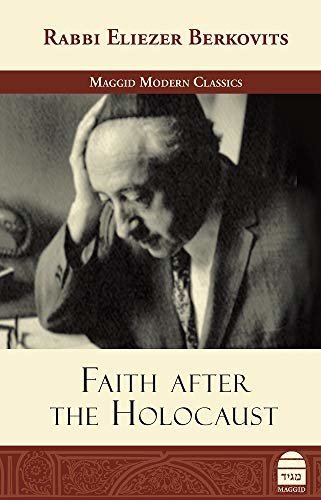Reconsidering ‘Faith after The Holocaust’
This week’s column is in tribute to one of our people’s greatest thinkers, Rabbi Dr. Eliezer Berkovits (1908-1992), who is widely ranked among the important Jewish philosophers of the 20th century.
Born in Romania and educated at the famous Hildesheimer Rabbinical Seminary, he received a PhD in philosophy from the University of Berlin. He held rabbinical positions in Germany, England, Australia, and the United States. From 1958 he was chairman of the department of Jewish philosophy at Hebrew Theological College in Skokie. In 1975, at the age of 67, he moved to Israel, where he taught and lectured until the end of his life.
Rabbi Dr. Eliezer Berkovits’s “Faith After The Holocaust,” recognized as a classic immediately upon publication, boldly and forthrightly addresses the most theologically fought question of our time: G-d’s noninterference in the Shoah. With great honesty, erudition, and philosophical depth, this treatise shows “how man may affirm his faith even when confronted with G-d’s awesome silence.”
Rabbi Dr. Berkovits states the following in chapter 4:
“In biblical terminology, we speak of Hester Panim, the Hiding of the Face, G-d’s hiding of His countenance from the sufferer.
“Man seeks G-d in his tribulation but cannot find Him. It is, however, seldom realized that the Hiding of the Face has two meanings in the Bible, which are in no way related to each other. It is generally assumed that the expression signifies divine judgment and punishment. …
“But the Bible also speaks of the Hiding of the Face when human suffering results, not from divine judgment, but from evil perpetrated by man. Even the innocent may feel himself forsaken because of the Hiding of the Face. …
“There is a manifestation of divine anger and judgment over the wicked; here it is indifference — G-d seems to be unconcernedly asleep during tribulations inflicted by man on his fellow.
“Of the first kind of Hester Panim one might say that it is due to Mipnei Hata’einu, that is judgment because of sins committed, but not of the second kind. It is G-d hiding Himself mysteriously from the cry of the innocent. It is divine silence of the rabbis spoke in the Talmud.”

 49.0°,
Fair
49.0°,
Fair 




